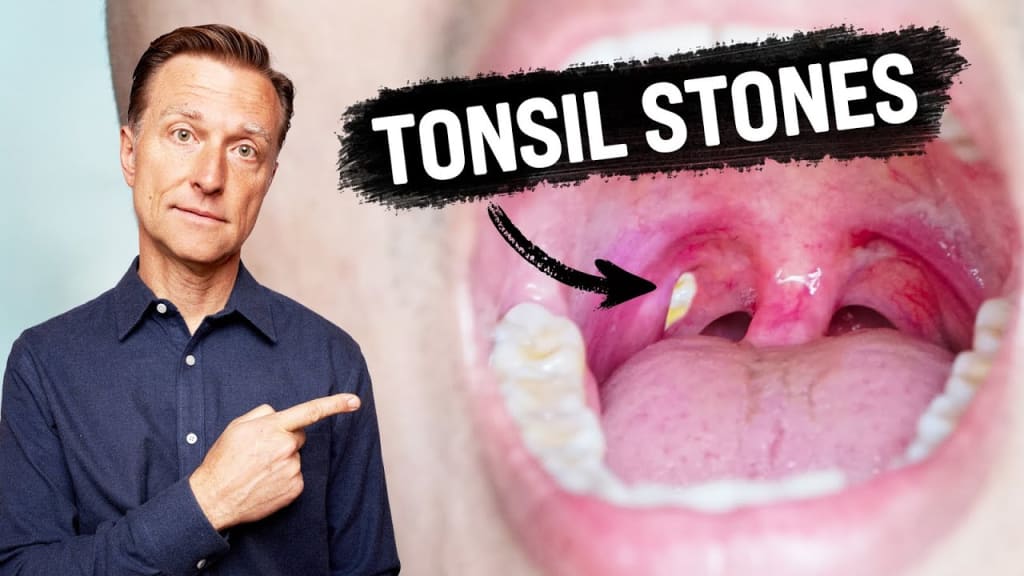Tonsil Stones Smell: Causes, Symptoms, and Treatment
Causes, Symptoms, and Treatment

Are you experiencing bad breath or a foul smell coming from your throat even after brushing your teeth? You may be suffering from tonsil stones. Tonsil stones are small, hard, yellow, or white deposits that form in the crevices of your tonsils. They are also known as tonsilloliths and can cause discomfort and bad breath. In this article, we will explore what causes tonsil stones, their symptoms, and treatment options.
What are Tonsil Stones?
Tonsil stones are calcified deposits that form in the crevices of the tonsils. They are usually small, but can grow to the size of a pea in some cases. Tonsil stones can be yellow or white in color, and they often have an unpleasant odor.
Tonsil Stones Smell
The smell of tonsil stones can be quite unpleasant and can lead to bad breath. The odor is caused by the buildup of bacteria, food particles, and other debris that gets trapped in the tonsil crevices. The bacteria break down the particles, releasing a foul smell.
What Causes Tonsil Stones?
Tonsil stones are formed when debris, such as food particles and dead cells, gets trapped in the tonsil crevices. The debris can become trapped in the crypts of the tonsils and harden, forming tonsil stones. Some people are more prone to tonsil stones than others, and there are several factors that can increase the risk of developing them.
Poor Oral Hygiene
Poor oral hygiene is one of the leading causes of tonsil stones. When you don't brush and floss regularly, bacteria and food particles can accumulate in your mouth, leading to the formation of tonsil stones.
Chronic Sinus Issues
Chronic sinus issues can also increase the risk of tonsil stones. When you have sinus problems, your sinuses produce more mucus, which can drip down the back of your throat and contribute to the formation of tonsil stones.
Large Tonsils
People with larger tonsils are more prone to developing tonsil stones. The larger tonsils have more crevices and crypts, which can trap debris and lead to tonsil stone formation.
Dry Mouth
Dry mouth can also contribute to the formation of tonsil stones. When your mouth is dry, there is less saliva to help wash away bacteria and food particles. This can lead to the buildup of debris in the tonsil crevices.
Symptoms of Tonsil Stones
Tonsil stones can cause a range of symptoms, including:
Bad breath
Sore throat
Difficulty swallowing
Ear pain
White or yellow debris on the tonsils
Swollen tonsils
Treatment Options for Tonsil Stones
If you are experiencing symptoms of tonsil stones, there are several treatment options available.
Salt Water Gargle
Gargling with salt water can help dislodge tonsil stones and reduce inflammation in the tonsils. Mix a teaspoon of salt in a glass of warm water and gargle for 30 seconds before spitting it out.
Manual Removal
Small tonsil stones can be removed at home using a cotton swab or the back of your toothbrush. Gently apply pressure to the tonsil to push the stone out of the crevice.
Surgical Removal
If you have large tonsil stones or are experiencing severe symptoms, your doctor may recommend surgical removal of the tonsils. This is a last resort treatment option and is only recommended in severe cases.
Frequently Asked Questions
Can tonsil stones cause health problems?
Tonsil stones are generally not harmful and do not cause any health problems. However, they can cause bad breath and discomfort.
How can I prevent tonsil stones?
Maintaining good oral hygiene is the best way to prevent tonsil stones. Brush and floss regularly, and use mouthwash to help kill bacteria in your mouth.
Can I remove tonsil stones at home?
Yes, small tonsil stones can be removed at home using a cotton swab or the back of your toothbrush. However, if you have large tonsil stones or are experiencing severe symptoms, it's best to see a doctor.
Do tonsil stones always cause bad breath?
Yes, tonsil stones can cause bad breath due to the buildup of bacteria and debris that gets trapped in the tonsil crevices.
Are tonsil stones contagious?
No, tonsil stones are not contagious.
How long do tonsil stones last?
Tonsil stones can last for weeks or even months if left untreated. However, they can be removed at home or by a doctor.
Conclusion
Tonsil stones can be uncomfortable and cause bad breath, but they are generally not harmful. Maintaining good oral hygiene can help prevent tonsil stones, and there are several treatment options available if you are experiencing symptoms. If you are unsure whether you have tonsil stones or have any concerns, it's best to consult a doctor.
Remember to gargle with salt water and practice good oral hygiene to prevent tonsil stones from forming. Small tonsil stones can be removed at home, but if you have large tonsil stones or are experiencing severe symptoms, it's best to see a doctor for proper treatment.
About the Creator
VitalityVibe
Welcome to VitalityVibe, your ultimate resource for unlocking your health potential and embracing a vibrant life. Our platform is designed to inspire and guide you on your journey to holistic well-being.






Comments
There are no comments for this story
Be the first to respond and start the conversation.